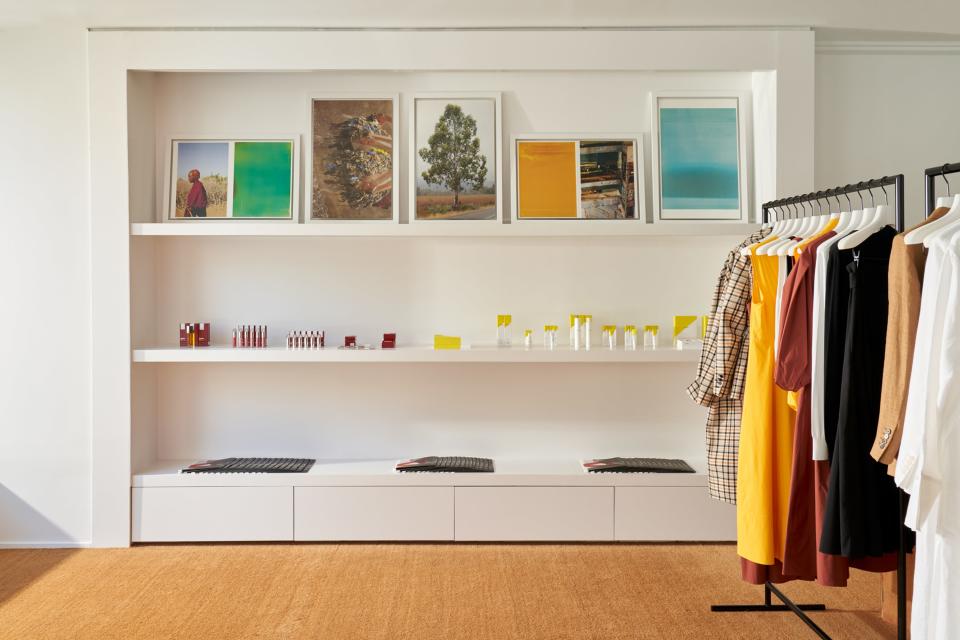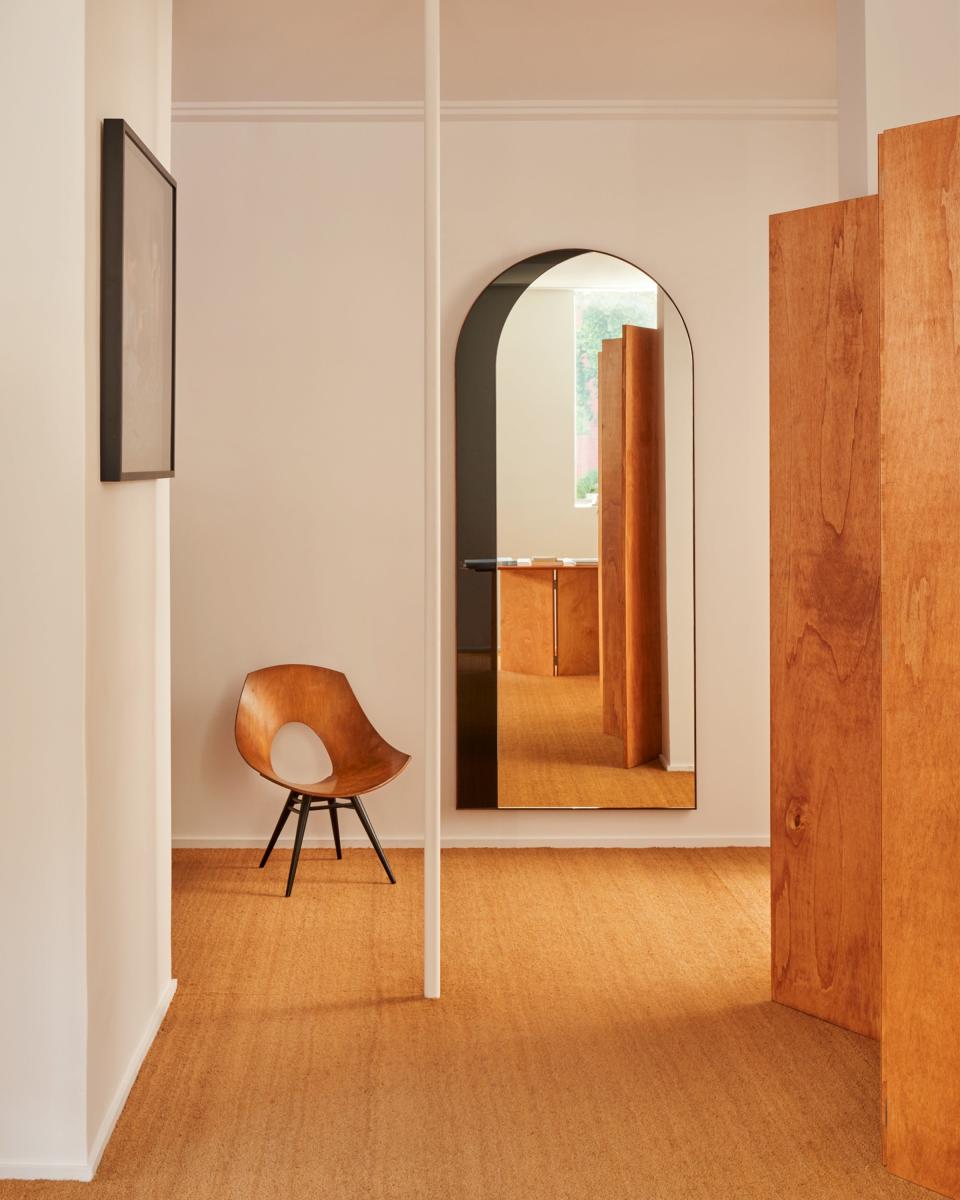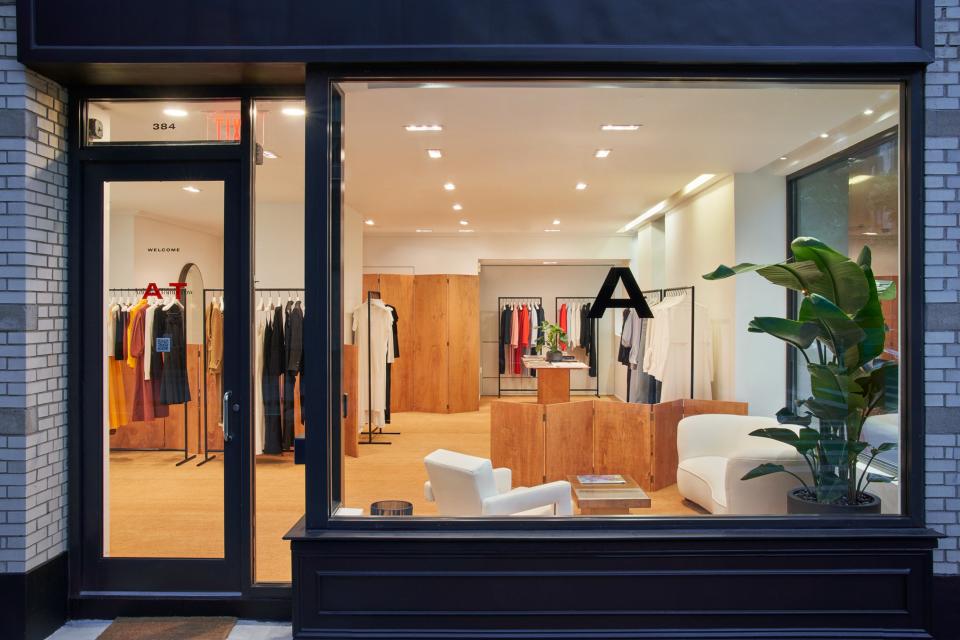Another Tomorrow’s New Space on Bleecker is About Substance, Not Stuff
Vanessa Barboni Hallik launched Another Tomorrow in January of 2020, weeks before the pandemic hit. By April, fashion spending was down 79%, headlines were declaring “sweatpants forever,” and Another Tomorrow’s main proposition was… suits. A former Morgan Stanley managing director, Barboni Hallik spent years wishing for more sustainable, ethical tailoring options, until she finally decided to do it herself (backed by her studies in sustainability management at Columbia University’s Earth Institute, where she is an M.S. candidate).
People still aren’t wearing suits like they used to, and the fashion industry is far from recovered. Barboni Hallik’s timing wasn’t great, but Another Tomorrow is thriving anyways. The brand just opened its first store on Bleecker Street, a serene and well-appointed space lined with racks of 100% organic cotton tees and tanks, indigo dip-dyed shirtdresses (a collaboration with Cara Marie Piazza), puffed-sleeve blouses, organic cotton knits, and, yes, plenty of suits: relaxed blazers in black, tobacco, candy apple red, and peony, each with a matching pleated trouser. These aren’t “business suits” unless you want them to be; Barboni Hallik said a young woman came in last week in cut-off shorts and bought a navy jacket (sized up) to wear with them.

It’s worth mentioning that she likely paid around $1,000 for it. Another Tomorrow isn’t the typical D2C brand premised on low prices and trends; it offers investment pieces that are made to last (or to sell back; the company will launch its own resale site later this year). Its success comes down to both its elegant, timeless designs (thanks to creative director Jane Chung) and rigorous commitments to sustainability and transparency. On Another Tomorrow’s website, the mission is poetically stated as “meeting the needs of today while laying the foundation for another tomorrow.” In other words: clothes that were made in a way that won’t compromise the future of people or the planet.
AT has a “do no harm” approach to materials—organic cotton, Tencel, and ethical wool make the cut, while polyester and animal-derived leather, down, and silk do not—and every garment comes with a QR code detailing its supply chain journey. The brand is Climate Neutral and B-Corp certified, and its policy documents on animal welfare, living wages, chemicals, carbon offsetting, and forest protection are all available on its site, should shoppers want to learn more.


In fact, many of AT’s customers do. The one benefit of launching in 2020 is that Another Tomorrow has met a newly-conscious clientele, many of whom want to buy less from here on out. Barboni Hallik was an early believer in the “fewer, better” approach and understood how climate change would push us in that direction; she just didn’t know 2020 would accelerate the shift so quickly. “I think there are relatively few people who will come into the store saying, ‘I only want to buy things that are dyed in this specific way,’ or have an obsession with a particular aspect of sustainability. But people do seem really attentive to the issue of waste [in fashion] and want to buy things that will last,” she said. “That’s the biggest philosophical change we’ve seen.”
Barboni Hallik described the new store as not just a point of sale, but “a place for discovery and curiosity.” You can peruse books by Susan McPherson, Julia Watson, Jacqueline Novogratz, and other thought leaders, or take home AT’s newsletter, which features interviews with many of those women. Locals will also be able to attend events and panels with women in the worlds of climate, art, and design later this fall.

The space is ultra-sustainable, too: The floor is covered in a chic, slightly beachy material made from coconut husks; the wood screens were made by Studio Giancarlo Valle using Forest Stewardship Council-certified poplar and finished with a vegetable stain; and the midcentury couch and chairs were reupholstered in ivory linen from one of AT’s trusted mills, because Barboni Hallik couldn’t find new furniture that met her sustainability requirements. (That’s a whole other issue, but it highlights the ways fashion can be a “gateway” into understanding the impact of everything we buy, from fashion to beauty to furniture.)
“I knew from the beginning that it would be important to have a store,” Barboni Hallik says, “and to create a space where people can really immerse themselves. We can build a community here around substance—not just around buying stuff.”

Originally Appeared on Vogue

